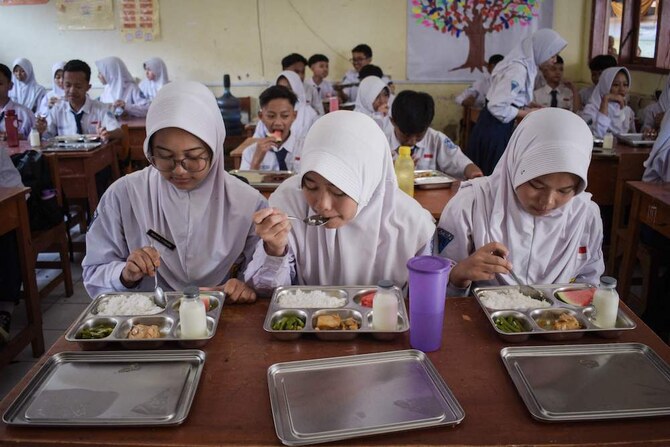MANILA: Years of fighting to put an end to child marriage in the Philippines have borne fruit with a recent law prohibiting the practice, but rights groups say much still needs to be done to implement the ban effectively.
According to UNICEF, the Philippines, a country of 110 million people, has the 12th-highest number of child brides in the world, with an estimated 15 percent of girls married before the age of 18.
The practice became illegal in the country on Jan. 6 when a law banning child marriage took effect, with President Rodrigo Duterte signing the “Girls Not Brides Act” after it was ratified by Congress in September.
The law closes legal loopholes enabling child marriage and specifies prison terms of up to 12 years for anyone marrying or entering into an informal union with a person under 18 years of age. The same penalty applies to people arranging or solemnizing underage unions.
Humanitarian groups welcomed the passage of the law, but as its penal provisions will not apply during a transition period of one year, rights activists have been calling for a multi-sectoral approach for its implementation.
“There’s still a lot of things to do other than working on implementing the rules and regulations of the new law,” Jeanette Dulawan, gender justice program manager of Oxfam Philippines, told Arab News.
Her comments came after Plan International Philippines country director Ana Maria Locsin issued a statement saying the law was “the first step in reclaiming the space with women and children who have been forced into marriage.”
Dulawan said Oxfam was advocating for “effective coordination among duty bearers and stakeholders,” as without it communities, especially those in conflict-affected, geographically isolated areas, would not be able to access interventions.
Child marriage is often seen in disadvantaged communities as a way to provide for a daughter’s future or as a means to prevent pregnancy outside wedlock. But data shows its effects are exactly the opposite.
“Per statistics, (it) increases the risk of early, unplanned, or unintended pregnancies,” Dulawan said, adding that it also increases the risk of death or complications during pregnancy and childbirth, which in the Philippines is already high.
She cited a 2019 recent report by UNFPA Asia-Pacific regional office that compared data from various Asian countries between 1970 and 2010, showing that the Philippines has seen little change in the percentage of women who were married from the ages of 15 to 19, while countries such as South Korea, Indonesia and India reduced the figure to less than half during the past 50 years.
“Now that we have the law, it’s very important that this should be implemented,” Dulawan said.
“As we have seen, child marriage is really a grave violation of human rights and it’s a serious public health issue.”


























